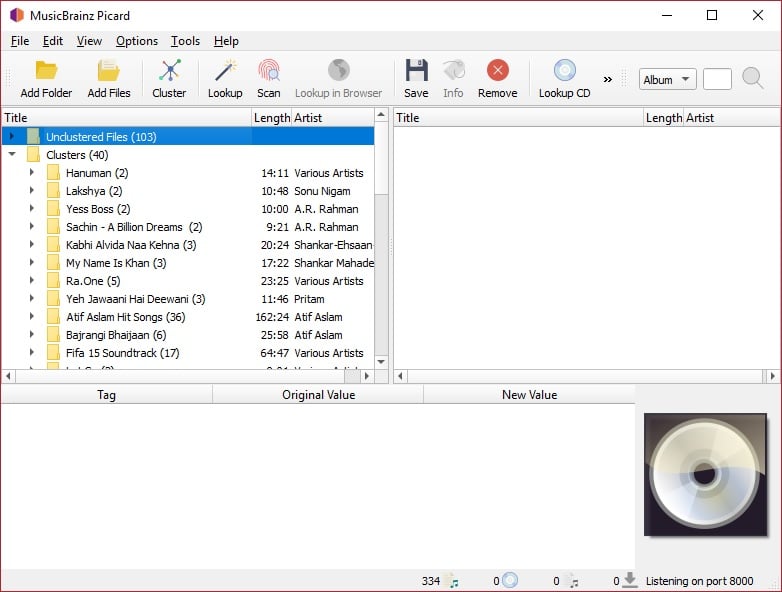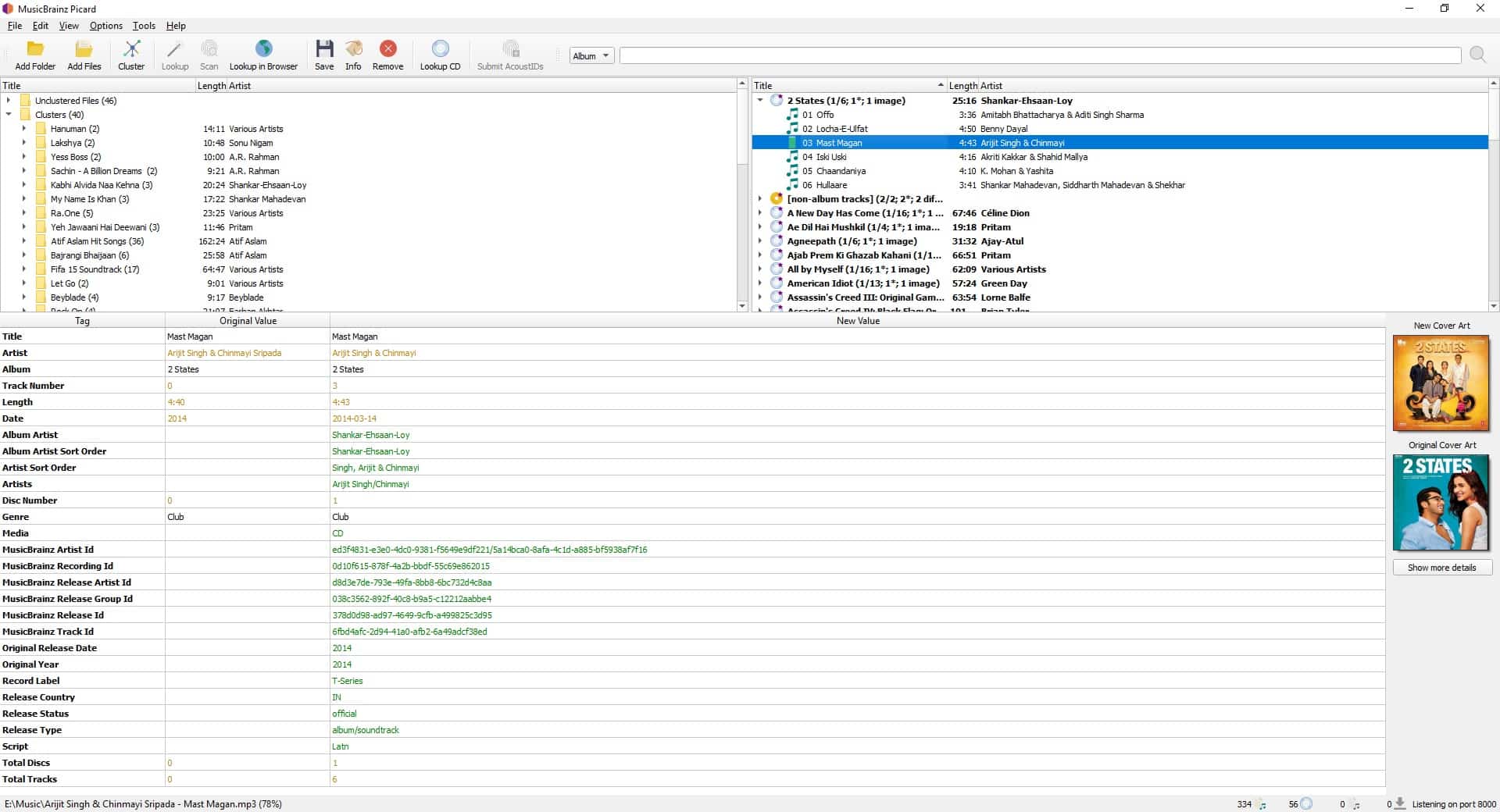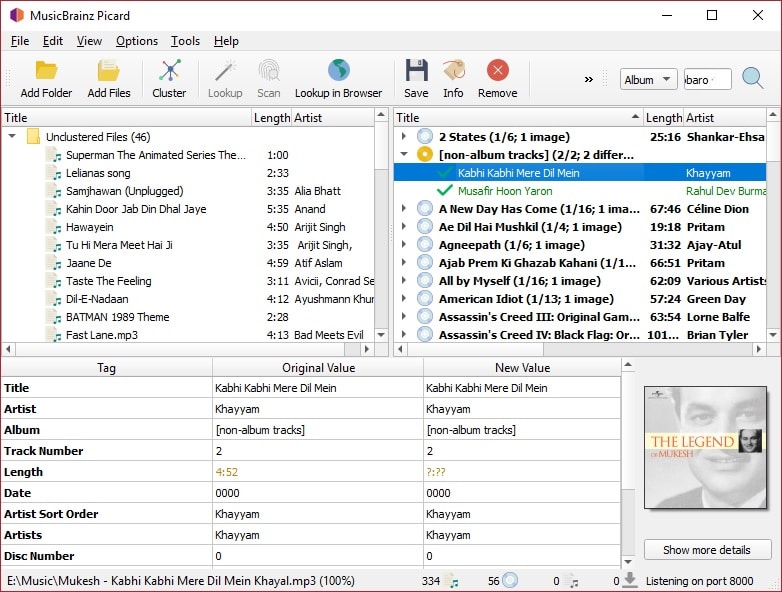If you have a music collection of more than a thousand tracks you’re bound to find some missing or incorrect meta tags. Of course, there are other reasons why your music files may have wrong or missing tags. These tags, such as artist, album, year, genre, and so on, help you browse your collection easily. They don’t matter much to everyone but if you listen to and own a lot of music, and get frustrated when you can’t find all Beatles songs in one place, MusicBrainz Picard is the way to go.
What is MusicBrainz Picard?
MusicBrainz Picard is a cross-platform music tagging application that runs on Linux, Mac OS X, Windows, and Android. It allows you to clean up and organize your local music by automatically updating the artist, album, track information, and album art cover of all songs. This free and open-source app has recently been updated to version 2.0. This update comes 6 years after its last major release in June 2012 as version 1.0. As such, MusicBrainz Picard comes with “many fixes and new features and much-needed upgrades!”
The app is written in Python and supports not only MP3 but many other audio formats. If you think Picard is a peculiar name for an app, it is. It has been named after Captain Jean-Luc Picard from the TV series Start Trex: The Next Generation.
Must read: Alt-Tab Terminator is a Better Alt-Tab for Windows
Changelog
- Supports tagging DSF file
- Picard 2.0 supports only 64-bit
- A keyboard shortcut has been added for deleting scripts from the Options > Scripting page.
- Improvements to User Interface
- Fixed saving tags for files on NAS devices
- Automatically overwrite existing cover art has been fixed
- Make multi-value script functions now work well
- Incompatible plugins can now be loaded with Picard 2.0
- Support for HiDPI and Retina
- Crashes when using the edit tag dialogue have been fixed
- Search crashes due to AttributeError has been fixed
- WAV files can now be opened
You can read the complete changelog including all the new features, changes, bug fixes, etc. in the official MusicBrainz changelog.
MusicBrainz
Picard is the name of the app by Music Brainz, a massive open-source database of music. The MusicBrainz Picard app uses this database to find, match, and tag your music. If the app can’t find a match against the MusicBrainz database, it uses AcoustID (a database of audio fingerprints) to figure out the song. In other words, it identifies the song like Shazam or any other music-identifying apps do, by listening to it. The only difference is Picard doesn’t need you to play the song since it can read the music file. So in case, you have a music file named PCywbhimh.mp3 it will be renamed to You’ll be in my heart.mp3 or whatever the original title is.
Download
Picard (Windows, Linux, and Mac)
Don’t miss: How to Download PDF Files on Chrome
How to get correct tags for your music files with MusicBrainz Picard
- Run MusicBrainz Picard once installed.
- Add a folder containing music files. That shouldn’t be hard to do since there are visible buttons to add files or folders. The application will also search subfolders, so if you’d like, you can add your whole library or large parts of it at once.

- Once you’ve added your files, you’ll notice most of them are categorized under Unclustered Files. Select the folder and click the Cluster button at the top. This will move some or all of your files to the Clusters folder as separate subfolders with rough artist and album info. The rest will remain in Unclustered Files.

- Select the Unclustered Files folder or individual folders inside it and click Lookup. All the selected files will then be matched against the MusicBrainz database and this can take some time depending on the number of files. You can see the results on the right side.

- On the right- you can expand the Albums and it’ll list the song you have from that album in green. In the bottom panel, you can see the various tags that Picard has found for the song. The tags are color-coded. The order of the colors is green > yellow > orange > red, where green is the best match. In case of an incorrect match drag and drop the track to its correct place on the right.
- When you’re ready, select the Album on the right and click the Save button. A green checkmark means the file is saved in its proper location.

